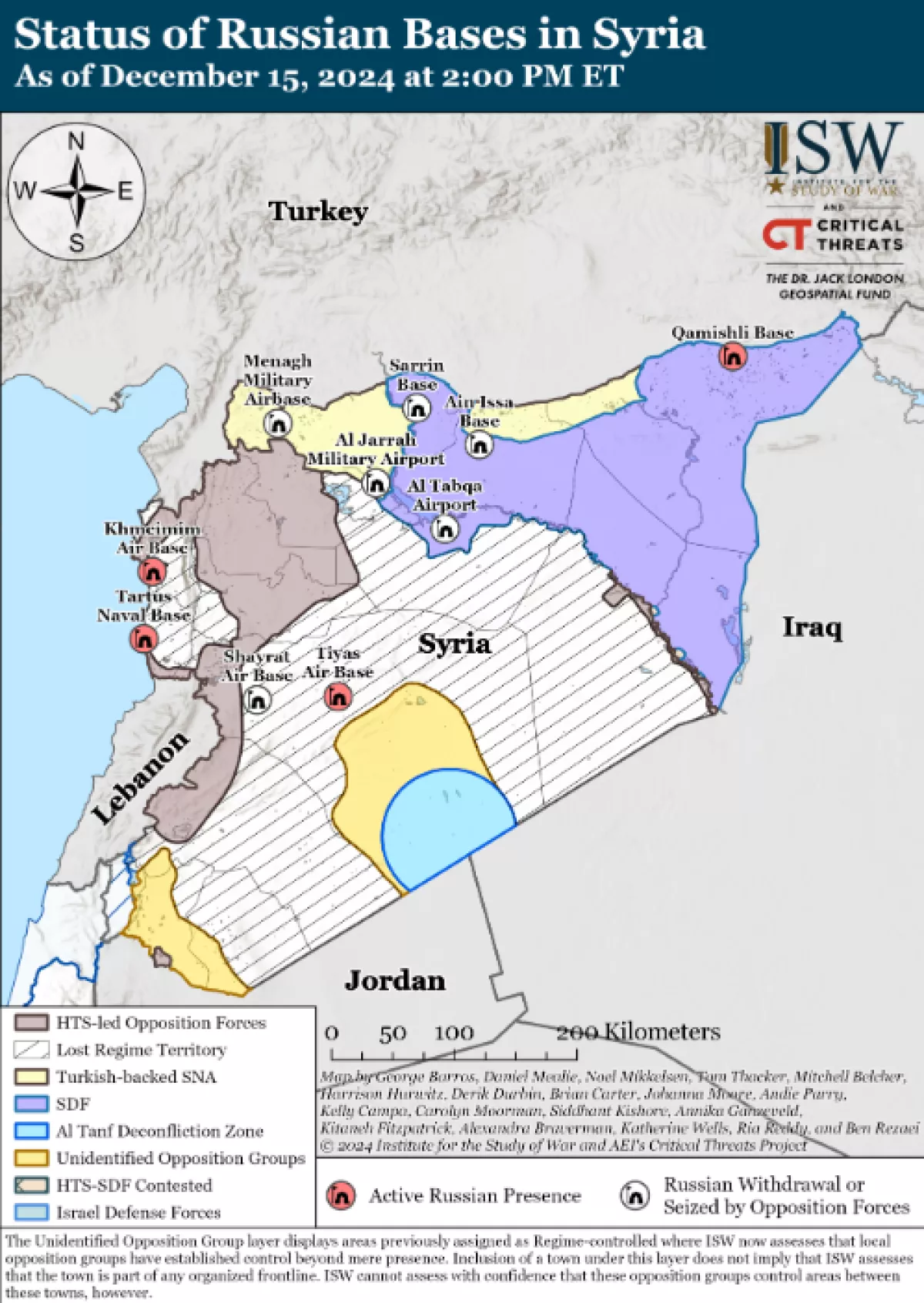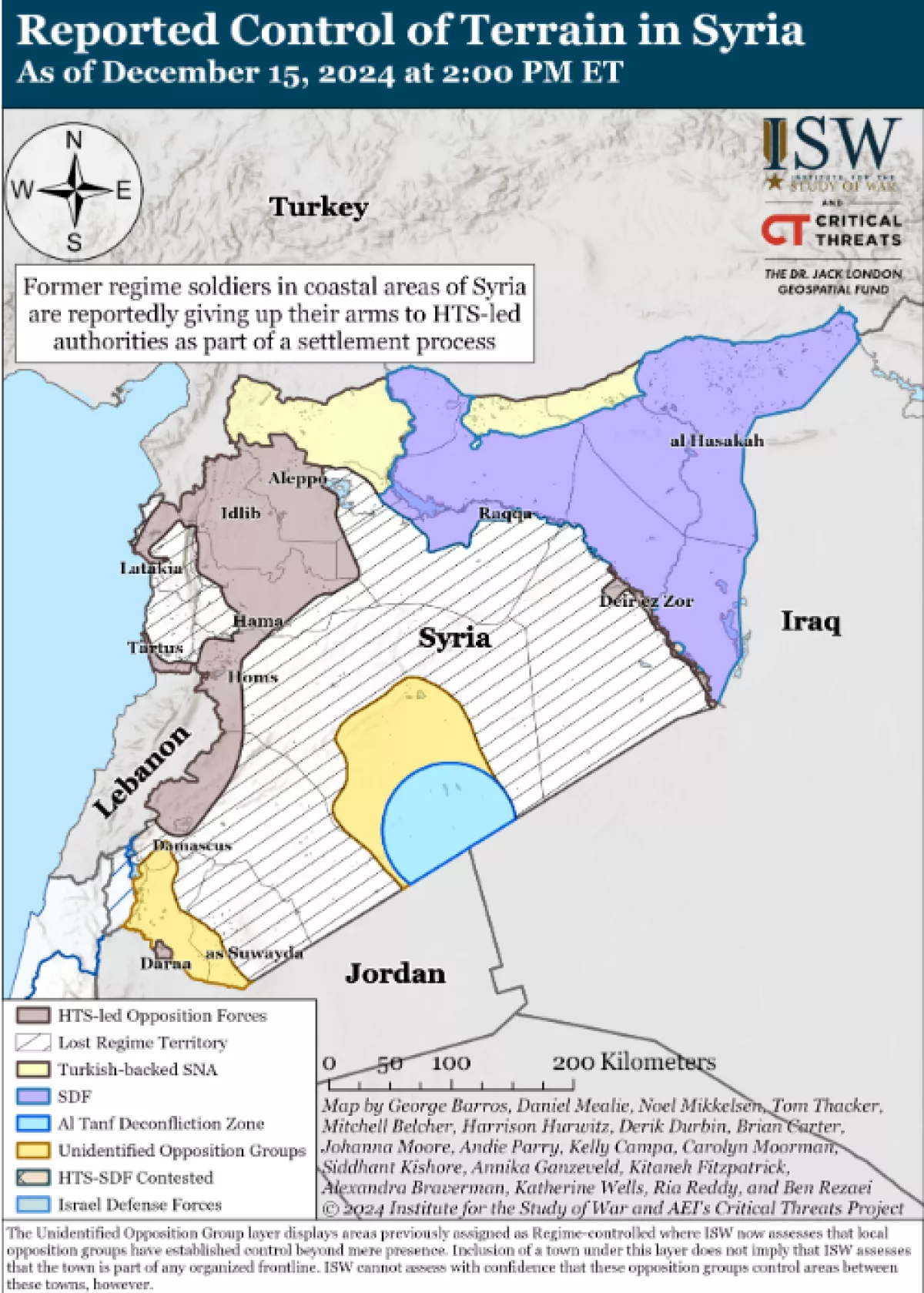ISW: Türkiye moves to expand control in northern Syria as Russia pulls back
Russia's withdrawal from bases in northern Syria and its diminishing influence are likely to expose the US-backed Syrian Democratic Forces (SDF) to further Turkish attacks in the region.
Russia has vacated several positions in the Manbij and Kobani areas as part of the ongoing Turkish-led offensive against the SDF. It is expected that Russia will also leave its remaining significant base in Qamishli, as Türkiye and local groups such as HTS (Hayat Tahrir al-Sham) and the Syrian National Army (SNA) are unlikely to allow Russia to maintain a presence there, Caliber.Az reports per the Institute for the Study of War (ISW).
While Russia’s positions in Tartus and Hmeimim have been reportedly secured, no such agreement appears to have been made for Qamishli. Türkiye’s defence minister also signaled support for Russia’s consolidation at Tartus and Hmeimim but indicated opposition to Russian bases elsewhere.

Russia’s presence had previously acted as a counter to Turkish-backed offensives aimed at capturing key SDF-controlled areas like Tel Rifaat and Manbij, both of which were recently seized by Turkish-backed forces. With Russia withdrawing, the primary obstacle to a Turkish operation aimed at further expanding control over SDF-held regions, or even attempting to dismantle the SDF altogether, has been removed.
Türkiye is likely to continue backing the SNA's efforts to dismantle the SDF. On December 13, Turkish Foreign Minister Hakan Fidan reiterated that Türkiye’s strategic objective in Syria is to "destroy" the SDF, suggesting that any ceasefire between the two parties is temporary.
Turkish-backed fighters have also been implicated in executing injured SDF fighters in northern Syria and looting civilian areas in Manbij. Such actions risk inflaming ethnic violence and destabilizing the region, particularly if Turkish-backed groups enter Kurdish areas, where Kurdish civilians could be targeted.
The SDF’s ongoing conflict with Türkiye and its proxies severely hampers its ability to support US counter-ISIS efforts in the region. The SDF is the primary US partner in Syria for combating ISIS, as it is the only force capable of conducting effective operations against ISIS in the areas it controls.

Additionally, the SDF is responsible for overseeing the al-Hol refugee camp and several prisons housing thousands of ISIS affiliates. The threat posed by Turkish forces could force the SDF to divert resources away from counter-ISIS operations, potentially jeopardizing the security of these critical facilities.
Meanwhile, HTS continues to consolidate control over armed factions in Syria. On December 15, the Men of Dignity, a Druze militia that played a key role in southern Syria, established checkpoints in Rif Dimashq Province. The group is reportedly coordinating fully with HTS’s Military Operations Department, which oversees all areas newly liberated from the Assad regime.
HTS commander Abu Hassan al Hamwi confirmed that a unified war room has been set up, comprising 25 opposition groups, with the aim of encircling Damascus. This military cooperation among opposition groups, which has been in the works for over a year, suggests pragmatic alliances focused on military objectives, even if governance cooperation remains uncertain.
In coastal Syria, former regime soldiers are reportedly surrendering their weapons to HTS-led authorities as part of a settlement process. HTS leader Abu Mohammed al Jolani has also reached out to Syrian Kurds, stating that they are part of the homeland and essential partners in Syria's future.
This outreach has been acknowledged by SDF leaders, who have called for negotiations involving Kurdish groups to create a "joint action plan." SDF commander General Mazloum Abdi echoed this sentiment, calling for "constructive dialogue" to establish a new Syria and end military operations. This diplomatic shift may be driven by the SDF's recognition of the growing existential threats posed by Turkish-backed forces and internal unrest within Kurdish-controlled areas.
By Vafa Guliyeva








